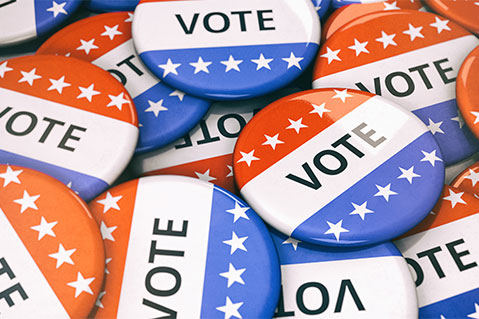April 20, 2016
How to Sell Campaigns
How much is a vote worth to your business? Find out by selling political promotional products with these endorsed tips:

Consider Your Campaign Contact: Presidential candidates might have an in-house design team, but that’s rarely the case otherwise. “There is a point person, but it’s usually a chief of staff or somebody else that has multiple jobs and this is not the primary focus of their efforts,” says Randy LeFaivre, president of D.C.-based MetroLogo (asi/268938), which has worked on campaigns for Congressman John Delaney and the Republican National Committee. In those situations, distributors become trusted partners by coordinating design, sourcing and logistics.
Follow the Money: “The higher the level of the campaign, the more access they have to funding, so they tend to buy more items,” says Danielle Lum, a marketing consultant for American Solutions for Business (asi/120075) who has extensive experience working with state and federal candidates in Hawaii. Campaign managers are conditioned to avoid significant spending on collateral until they raise enough money to fund other key areas first.
American-Made Is Essential: No candidate should be caught with promo items from elsewhere if American alternatives are available. “USA-made is an American jobs issue, against outsourcing, and is true across all party lines,” says Joe Fuld, founder of The Campaign Workshop, which primarily serves Democratic candidates. Beyond USA-made, Democrats prefer the union bug label to show their support of organized labor.
Make Rare Exceptions: Branded phone cases have been extremely popular this election, but “I challenge anyone to find a phone case that’s made in the USA,” says Steve Grubbs, co-founder of Victorystore.com (asi/352041). As the national store manager for Rand Paul's presidential run, Grubbs and the campaign team decided that sourcing outside the U.S. was unavoidable to stock the candidate’s wide-ranging store.
Don’t Wait Too Late to Collect: Lori Ferber Collectibles, a political memorabilia company, delivered product for a senate campaign eight years ago – but then the candidate pulled out and never paid. “Now,” says co-owner Steve Ferber, “we either get paid in full or a significant portion paid up front.”